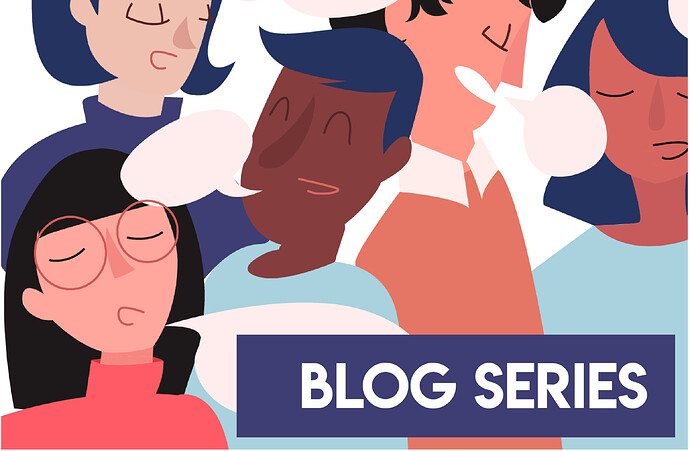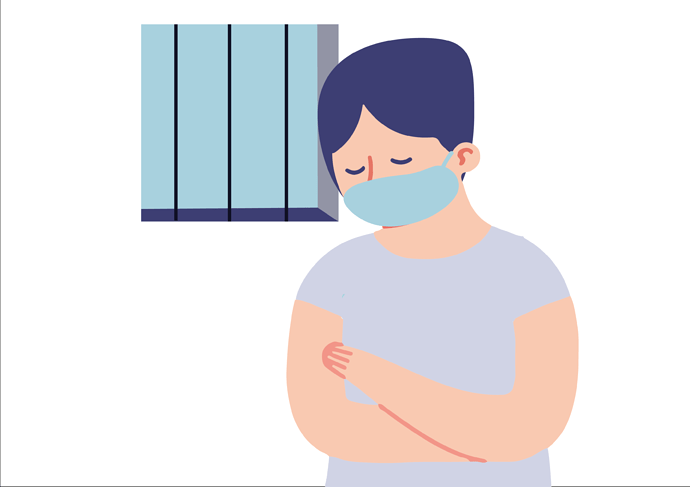Why do we need open research behind closed doors?
Nulla poena sine culpa – no punishment without culpability is a key legal principle. No one can be punished for acts they cannot be held legally responsible for. What seems to be a well-established and recognized legal concept, becomes a lot more complex and ambivalent when looking at the deprivation of liberty of persons with psychosocial and intellectual disabilities.
Preventive detention – a neglected niche of criminal law
In a system of preventive detention, persons can have their right to personal liberty restricted based on a prognosis of their ‘dangerousness’ instead of a criminal offense they have been sentenced for. In practice, this means that many of these persons do not know how long they will be detained for, as the decision often depends on the annual re-assessment by an expert witness of psychiatry. In some countries, such as Austria, there is no maximum time limit, rendering preventive detention an indeterminate and thus potentially life-long sentence. While the aim of preventive detention is the treatment and rehabilitation of persons with psychosocial and intellectual disabilities, in practice their lived realities in closed institutions often bear a closer resemblance to punishment than to treatment.
The legal basis of this specific form of deprivation of liberty is overly complex in national contexts. The procedures and realities vary widely across different states, making international comparisons challenging. In addition, some countries lack statistics on persons detained as a preventive measure, since they are not included in the regular statistics on prison populations. There is, however, a clear upwards trend in numbers, including in Austria, as on average fewer people are released from preventive detention than are committed annually. This lack of statistical data makes it difficult to understand the dimension of the issue. It is also difficult to complement the picture with qualitative research due to institutional (and physical) barriers that impede direct exchange with persons deprived of liberty in some countries.
This already challenging situation is likely to be exacerbated by the current pandemic. Several human rights bodies and NGOs emphasize the specifically vulnerable situation of persons deprived of liberty during the Covid-19 pandemic. As Penal Reform International (PRI) notes “people in detention face a high risk of contracting COVID-19, not least due to the cramped and overcrowded conditions found in many detention facilities, lack of healthcare provision and the disproportionately poorer health status among prison populations compared to the general population.“ In addition the Subcommittee on Prevention of Torture stresses that “the potential exposure to the risk of ill-treatment faced by those in places of detention may be heightened as a consequence of such [Covid-19-related] public health measures taken“. This can be due to further restricted contact to the outside, limited possibilities for preventive monitoring or overburdened staff. The vulnerability to Covid-19 of persons with disabilities that are deprived of liberty is even more pronounced. Persons with (psychosocial) disabilities are generally more likely to already be in poorer physical and mental health, a condition which can only be exacerbated when they are being deprived of liberty. In institutional contexts, they may also be dependent on informal support by their peers, which necessitates close physical interaction and often do not have access to adequate health services.
The right to freedom from torture and ill-treatment, however, is not the only human right at stake. Further restrictive measures in this environment are likely to negatively impact a variety of other rights. This includes the right to family life which is affected by bans on personal visits as well as procedural rights which are, for instance, restricted through the suspension of hearings or limited access to a lawyer. This is in addition to the impact severely restricted social contact and canceled rehabilitative activities may have on the health of detainees. The cancellation of rehabilitative activities such as therapy sessions can also have a particularly important practical dimension. Undergoing therapy is often necessary to let persons with psychosocial and intellectual disabilities progress to a less restrictive detention regime. This is in turn often a precondition for a conditional release from preventive detention. The cancellation of therapy sessions may therefore effectively impact not only the affected individuals’ mental health but also the length of their deprivation of liberty.
Open research behind closed doors
These intersecting risks and vulnerabilities make research on the situation of detainees with psychosocial and intellectual disabilities a pressing necessity. For this reason, the Ludwig Boltzmann Institute of Fundamental and Human Rights has launched the project ‘Open research behind closed doors’. In cooperation with partners from Austria (Selbst- und Interessensvertretung zum Maßnahmenvollzug), Germany (Strafvollzugsarchiv), and Italy (Associazone Antigone) it aims to assess the challenges faced during the Covid-19 pandemic by persons with psychosocial and intellectual disabilities, who are deprived of liberty as a result of their criminal behavior and/or as a result of exemption from criminal responsibility due to their disability. The aim is to gain an insight into the lived experiences of detainees with psychosocial and intellectual disabilities in general, as well as specifically in the context of the Covid-19 pandemic. Based on this objective, the project will identify paths for future research on the challenges of pandemics in closed institutions, develop recommendations on how the situation of persons deprived of liberty with psychosocial and intellectual disabilities in times of a pandemic can be improved, and raise awareness of the issue.
To achieve these goals, the project applies open innovation in scientific methods. In practice, this means that the project is conducted by researchers together with persons deprived of liberty with psychosocial and intellectual disabilities, their relatives, and experts closely working with them (e.g. lawyers, representatives of extramural care facilities, and so on). All these important stakeholders will be actively participating in the research process at various stages of the project, be it in the conceptualization of the project or the identification of challenges as well as of pathways for future research. Moreover, in order to strengthen the engagement and effective empowerment of affected persons, the project is co-design and co-developed with partners that have longstanding experience in working on the rights of detainees with psychosocial disabilities and in representing the interests of persons who are deprived of their liberty and their relatives.
Get involved!
You can be an active part of the project and contribute to improving the situation by:
Keeping up to date:
Follow the development of the research, our findings, and insights by regularly checking the Atlas of Torture’s Facebook and Twitter. Moreover, we recommend visiting the Atlas of the Torture Exchange Platform every two weeks, where you will find interesting blog posts as well as other new publications that aim to display the diverse perspectives on this topic.
Sharing your expertise:
Share your expertise with us: Comment on this post or send an email to elisabeth.mayer@humanrights.at.
Creating awareness:
To spread awareness, please share our content on your social media with your family and friends. Together we can shed light on this issue and improve the situation of detainees with psychosocial and intellectual disabilities.
Remember, your active engagement is crucial for achieving meaningful results.
Thank you for your support!
Elisabeth Mayer
Consultant for the Project ‘Open research behind closed doors’ of the Ludwig Boltzmann Institute of Fundamental and Human Rights
–
With the support of Laura Stelzer, Project Assistant in the Human Dignity and Public Security Department of the Ludwig Boltzmann Institute of Fundamental and Human Rights


